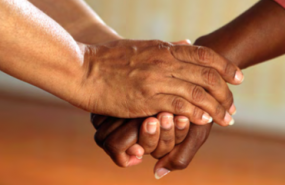Evaluation of the CRG SI (2014-2016)
- 17.11.2016 04:28
- Post Views: 1,376
In November 2016, prior to the 36th Global Fund Board Meeting, Sarah Middleton-Lee, an Independent Consultant, has finalised the report on an evaluation conducted during April–October 2016 on the performance of all three components of the Community, Rights and Gender Special Initiative (CRG SI), carried out by the Global Fund over a three-year period of 2014-2016. The existence of this and 5 other Special Initiatives will be determined at this meeting, based on the catalytic funding distribution.
The aim of the Evaluation was:
1. To assess the overall achievements of the CRG SI in terms of its results, challenges and lessons in supporting the meaningful engagement of communities/civil society in the rollout of the Global Fund’s (New) Funding Model; and
2. To make recommendations for the future directions of the CRG Special Initiative, within the context of operationalising the Global Fund Strategy for 2017-22 and dependent on future Board decisions.
The 65-page document consists of 4 sections: introduction, findings per component, conclusions and recommendations and is additionally supported by the methodology, interviews and relevant case studies.
The CRG Special Initiative
In April 2014, the Board of the Global Fund approved a CRG Special Initiative, with an allocation of $ 15 million for three years (2014-16). This was one of five Special Initiatives that were assigned a total of $ 100 million in non-allocative funding due to addressing areas of work “not adequately accommodated through the allocation of resources to Country Bands”.
It aimed to ensure that, within the rollout of the Funding Model:
- Communities and civil society were meaningfully engaged in the design, implementation and monitoring of supported programmes.
- Technically sound interventions to address human rights, gender equality and Community Systems Strengthening (CSS) were included in Concept Notes and grants for HIV, TB and Malaria.
The CRG Special Initiative comprised of three core components as shown on the diagram below.

Source: “Evaluation: Community, Rights and Gender Special Initiative 2014-16 – The Global Fund to Fight AIDS, Tuberculosis and Malaria, November 2016”
Component 2 of the RCG SI
The evaluation report shows that during the three-year period East Europe and Central Asia Union on PLWH (ECUO), Eurasian Harm Reduction Network (EHRN) and the Alliance Regional Technical Support Hub for EECA (EECA Hub), as the pre-selected CRG TA providers for EECA region, have carried out eight national level and three regional level TA assignments within the Short-term CRG TA provision program out of a total of 65 preformed worldwide, most of which being situational analysis and supporting program design, as well as Country and regional dialogue and relevant processes engagement. For example, Case study 7: Strengthening engagement in HIV/TB dialogue and governance, Kyrgyzstan describes EECA Hub’s successful efforts on a comprehensive review of the existing harm reduction programme and facilitation of the Pre-Dialogue and Country Dialogue meetings for key populations and CSOs, as well as meetings with service providers and government officials; supported the planning and facilitation of Kyrgyzstan’s 7th National Forum of AIDS Service Organisations, with a key objective to develop a civil society response to the TRP comments and provided TA to train trainers in the delivery of peer-driven harm reduction services. You can visit the TA Opportunities section of our website to find out more about the CRG TA Program and how you could benefit from it.
Component 3 of the CRG SI
The 3rd Component, Regional Civil Society and Community Support, Coordination and Communication Platforms, have 4 Key objectives:
1. Enhance knowledge of civil society and community groups on the Global Fund and access to TA/support.
2. Coordinate with other TA initiatives and programmes in the region.
3. Improve understanding of TA/capacity development gaps and needs of civil society and community groups.
4. Strengthen and develop strategic civil society and community capacity development initiatives.
Based on these objectives, each of 6 Platforms worldwide, planned their own activities. You can find some examples of these on p. 29-32. Case study 19: EECA Platform: Supporting communities/civil society to request TA describes a range of activities conducted by EECA Platform. This Case study illustrates EECA Platform’s contribution to one of the project’s indicators – Stronger communities/civil society engagement in and influence on Global Fund processes, through improved access to information and TA – by sign-posting organisations to TA initiatives (such as to support their engagement in Concept Note and Country Dialogue processes) and, where possible, providing practical assistance for them to apply for and maximise opportunities. Over the course of the project so far EECA Platform has had approx. 21 instances when it had supported communities/civil society to some form of TA or support.
As we can see in the Lessons learned Component 3 section (p. 34), the key challenges of the Platforms are, among others, as follows:
- Experiencing a lack of understanding and recognition of the Platforms by some people in the Global Fund Secretariat (notably in the GMD).
- Working in regional contexts where, beyond Component 1 of the CRG Special Initiative, there are very few TA opportunities available.
- Changing the mind-set (including among communities/civil society) that responses to HIV, TB and Malaria should be siloed, with no inter-connections or shared needs.
- Coping with the frequent reality that ‘information is not enough’ – such as with Platforms having to provide intense support to communities/civil society to articulate, cost and apply for TA.
- Lacking formal connections between the Platforms and Component 2 of the CRG Special Initiative (long-term capacity building by RCNF grantees).
Conclusions and recommendations
Overall the report states the following as the outcomes across all three components that country and regional-level Global Fund Dialogues, Concept Notes and grants that benefitted from:
- The more extensive and effective engagement of better informed, capacitated and coordinated representatives of communities/ civil society.
- The contribution of more consensus-based and strategic CRG-related inputs** – through communities/civil society’s identification of, and advocacy on, joint and priority ‘asks’.
- The design of more relevant and focused CRG-related interventions* – through the increased availability, analysis and application of evidence on key gaps and needs, in particular relating to key populations.
- The inclusion and budgeting of more technically sound CRG-related interventions** – through the integration of recognised good practice into grants.
The Evaluation’s main conclusion was that the Global Fund’s CRG Special Initiative brought significant value-added – being strategic and timely and filling an identified and urgent gap in the global TA/capacity building architecture. The Initiative had a sound rationale – responding to the specific need to strengthen the meaningful engagement of communities/civil society in the Global Fund’s processes and to ensure the inclusion of technically sound CRG-related interventions in Concept Notes and grants.
Based on the Evaluation’s findings and conclusions, it is recommended that the Global Fund should:
- Allocate funding, for at least three years, for continuation of the CRG SI.
- Expand the remit of the Initiative to go beyond grant signing and offer TA and capacity building to communities/civil society for all stages in the Global Fund’s Funding Model.
- Review the conceptual framework and implementation modalities of the Initiative to ensure that it operates as a more connected and comprehensive model (incl. connections within components).
- Collaborate with relevant technical partners to strengthen the Initiative’s specific and innovative efforts to mobilise and support the meaningful engagement of TB and Malaria-focused communities/civil society in Global Fund processes and the inclusion of appropriate CRG-related interventions in grants.
- Strengthen the effectiveness and efficiency of the management and administration of the CRG SI by the GF Secretariat to improve the simplicity, speed and transparency of the processes.
- Develop and implement an M&E framework per component and for the Initiative as a whole.
- Develop and implement a knowledge management and communications strategy to document, analyse and systematise the key learning from the Initiative and, in turn, to communicate its work and value-added to internal and external stakeholders.
To find out more about all three component, including typical activities, results and lessons learnt, you can read the full text of the report here.
Related News
Main decisions at Global Fund’s 41st Board meeting include updated allocations methodology and restricted financial contributions
Decision on changes to committee selection processes deferred for further consultation. Post Views: 1,583 Read moreCase study examines how Community, Rights and Gender Strategic Initiative has advanced Global Fund objectives
Among key findings, CRG SI has improved awareness of technical assistance and positioned communities to scale up human rights work. Post Views: 1,142 Read moreStrengthening Community Engagement in Global Fund Processes through the Community, Rights and Gender Strategic Initiative
A Joint Case Study from the Six Regional Platforms for Communication and Coordination. Post Views: 0 Read moreServices for migrants and refugees from Ukraine – HIV/TB care with a focus on key populations
Due to the increasing flows of refugees from Ukraine because of Russia’s invasion of Ukraine, the EECA Regional Platform created a spreadsheet to fill contacts details of face-to-face and online services for refugees and migrants (with a focus on HIV/TB care and key population groups).
Regional Platform – EECA
This web-resource is a part of new regional communication and coordination project “Regional Civil Society and Community Support, Coordination and Communication Platform - EECA”, implemented by Eurasian Harm Reduction Association (EHRA).
Tags
See also
-
EECA’s Regional Platform monthly Newsletter #20, January 2026 27.01.2026 12:58
-
Global Fund Eligibility List 2026 27.01.2026 11:19







